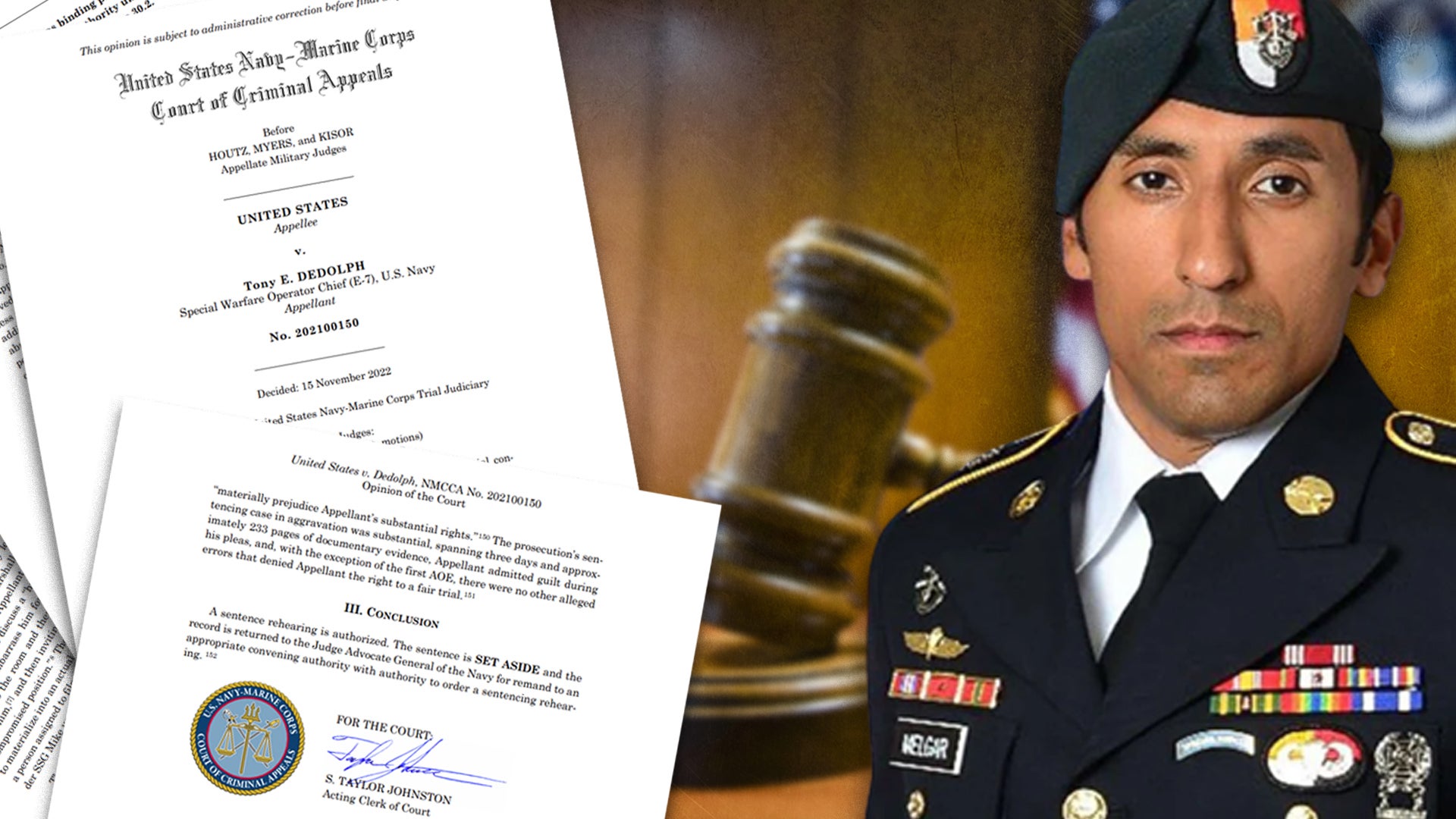The Navy Wants to Push Out Problem SEALs. But Trump May Get in the Way.
A push to strengthen discipline in the SEAL teams has been stymied by one member’s support in the White House.
Spiking drinks with cocaine, shooting Iraqi civilians, strangling a Green Beret: The Navy SEAL teams have been rocked by one high-profile scandal after another in recent months, and the leader of the elite commando force, Rear Adm. Collin P. Green, has vowed to clean house.
Admiral Green has come down hard on misconduct, fired two key leaders and made an unusually public admission that the Navy’s secretive warrior caste has an “ethics problem.” At the same time, though, he has steered wide of the SEAL at the center of one of the grimmest episodes, Special Operations Chief Edward Gallagher, who was charged with shooting civilians, murdering a captive Islamic State fighter with a knife, and threatening to kill witnesses.
Chief Gallagher was acquitted of murder charges this summer, but evidence that he had engaged in a range of other misconduct, including theft and drug use, had come to light during the investigation. Admiral Green and other Navy leaders were planning to demote him and force him out of the SEALs — sending a message that such conduct had no place in one of the country’s premier fighting forces.
None of that has happened, though, because one of Chief Gallagher’s most vocal supporters happens to be the commander in chief. President Trump has repeatedly intervened, and has posted so many expressions of support for the SEAL on Twitter that the Navy now sees Chief Gallagher as untouchable, according to three Navy officials familiar with the case. Any talk of punishment has been shelved, not only for the chief, but for two other SEALs who had been facing possible discipline in the case, these officials said.
Mr. Trump helped Chief Gallagher get released from confinement before his trial, and personally congratulated him on Twitter when he was acquitted.
“People want to hold these guys accountable,” said one Navy officer who was involved in the punishment deliberations. “But they are afraid that if you do anything, minutes later there will be a tweet from the White House, and the officer in charge will get axed.”
The officer, like others interviewed for this article, asked that his name not be used because he feared retaliation.
The president has previously made it clear that he believes the country should tread carefully when calling American troops to account for acts of war. Only last week, he announced on Twitter that the White House was reviewing the case of Maj. Mathew L. Golsteyn, a former Army Special Forces soldier charged with murder in the death of a Taliban bomb maker in Afghanistan. “We train our boys to be killing machines, then prosecute them when they kill!” Mr. Trump wrote.
The issue in Chief Gallagher’s case became apparent to Admiral Green’s team in August, when the chief’s lawyers — including one of Mr. Trump’s personal lawyers, Marc Mukasey, who joined the defense team two months before the June court-martial — had tried and failed to persuade Navy commanders to suspend any punishment. Soon after that, the president brought up the Gallagher case at a meeting with the Secretary of the Navy and the Chief of Naval Operations, according to a senior Navy official.
White House officials strongly denied that the Gallagher case was discussed. But hours after the meeting, the Chief of Naval Operations announced that he would personally take over the Gallagher case from another admiral, who had indicated that she planned to punish the chief.
The Navy had also planned to discipline two other SEALs who had come under investigation in the Gallagher case: Lt. Jacob Portier, who was charged with not reporting Chief Gallagher’s actions in Iraq; and Special Operator First Class Corey Scott, a platoon medic whose testimony at the chief’s trial prompted the Navy to open a perjury investigation. But the day after the White House meeting, the charges against Lieutenant Portier were dropped and the investigation of Special Operator Scott was ended.
The intervention from Washington left Navy leaders with a dilemma: Not punishing Chief Gallagher and the others would undermine efforts to restore discipline in the ranks, but punishing them only to be publicly reversed might make things even worse.
“All that’s off the table now,” said a Navy Special Warfare officer who was briefed on the most recent deliberations of Admiral Green’s team about the matter. Navy commanders grew concerned that if they took away from Chief Gallagher the Trident pin that signifies membership in the SEALs, only to see the president give it back again, the officer said, “it sends a message that the commanders aren’t in control.”

